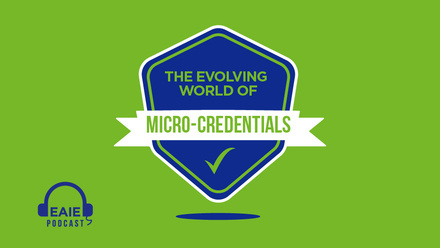Reforming the university: divesting Eurocentrism in knowledge production

The biomedical and social sciences of today have been produced and formulated in Western Europe and North America – the former centres of overseas empires and the epicentre of today’s global economy. The Global North continues to be the centre of scientific activity, hosting the world’s most prestigious universities and research institutes, allocating most of the world’s research funding and publishing the majority of leading journals. It is also where a large number of scholars from the Global South are educated and where they pursue their careers. Is this problematic? Yes.
Knowledge production is not universal and knowledge does not exist independently of the cultures and societies in which it is produced. It is influenced by the histories, backgrounds, realities and views in the places where scientists conduct their research. Furthermore, as is highlighted in the Handbook of Feminist Research, “language is not a tool for transmitting some truth that exists elsewhere, apart from the text. A text is never innocent but is constitutive of certain truths and exclusive of others and must always be placed under investigation”.
Knowledge production is not universal and knowledge does not exist independently of the cultures and societies in which it is produced
Finally, it is dangerous for knowledge to travel exclusively from one part of the world to another, in this case from the Global North to the Global South. Theories should not be based solely on the expertise of a privileged few, because this obscures more than it reveals, reducing and impoverishing knowledge and preventing us from analysing and engaging with the issues we face in our global society.
Eurocentrism and power
In recent years, we have witnessed a growing movement towards a different kind of knowledge production: one that demands the renovation of the human sciences by contesting the hegemony of the West. One of the most pervasive features of Western academic research and knowledge production is Eurocentrism as a system of knowledge that focuses on European culture and history and excludes a broader view of the world, which is a far from innocent endeavour.
Hence, we – the teachers, practitioners and academics situated in the Global North – need to widen our search by looking for knowledge in alternative settings. We need to reflect on whom we cite in our papers, publications and presentations – for example, do we cite women, people of colour, indigenous voices or theories from the Global South? We need to reflect on whom we research and why, asking ourselves: How will our research make a change and contribute to a better world? The concept of over-researched communities and topics is crucial here: Do you want to be another person researching refugee camps without being able to initiate substantial change? We must learn to listen, enter into solidarity with our colleagues in other parts of the world and challenge Western ethnocentric epistemology. We need to question our reading lists and bibliographies – the literary canon of our institutions.
Accountability and inclusivity
In this endeavour feminist research practice can play a crucial role as it is not interested in creating grand narratives but in situated knowledges. It uses the axioms of ‘accountability’, ‘positioning’ and ‘partiality’ as ways to thwart hegemonic knowledge production and ideas of neutral truths. It focuses on the idea that we need to be accountable for our research and our position: we are not writing from nowhere but from a certain place, which will influence both our research practice and our knowledge production; who we are and where we come from is inextricably linked to what we create.
We need to reflect on whom we research and why, asking ourselves: How will our research make a change and contribute to a better world?
Further, being accountable means taking an intersectional approach that scrutinises the power relationships in knowledge production within the academy. We need to contest, deconstruct, rebuild and oppose relativisms and universal truths, and we need to be open to the unexpected. Knowledge production needs to be eclectic, to restore plural subjectivities and to move away from Western ethnocentrism.
The higher education landscape is not an exempted space. An important step is to recognise that there are gaps and to see Eurocentric knowledge production as a reality in the academy that must be discussed and approached. The existence of structures that uphold practices and discourses of exclusion and ostracism must be acknowledged. Higher education will be more meaningful if we offer an inclusive environment for students, staff, faculty, researchers and everybody else involved.






